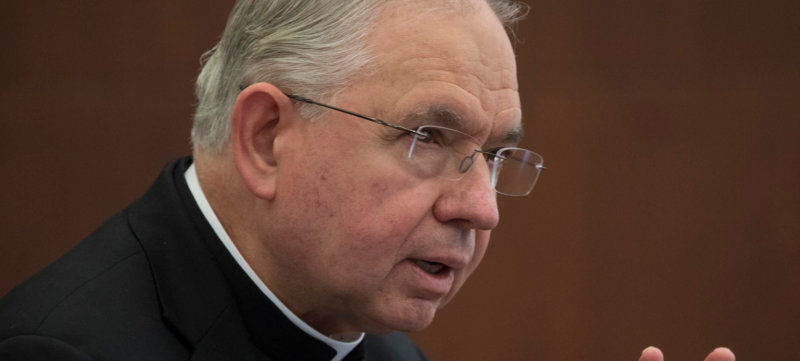LOS ANGELES — Church officials are urging Catholics to continue to oppose a California bill that would force priests to disclose information about child sexual abuse that they hear in the sacrament of confession.
The call came as the Senate measure, known as S.B. 360, advanced in the Legislature after lawmakers “accepted several of the church’s recommendations to strengthen mandated reporting requirements for clergy,” as Los Angeles Archbishop Jose H. Gomez noted in a May 20 statement.
However, despite the changes, the bill remains “an unacceptable violation of our religious freedoms that will do nothing to protect children,” the archbishop said.
As amended, the bill now protects the seal of the confessional — except in cases where a priest is hearing another priest’s confession or in cases where a priest is hearing the confession of a co-worker.
Current California law requires clergy to report suspected abuse or neglect unless the information about the abuse was obtained during confession.
S.B. 360, authored by a Bay-area Democrat, Sen. Jerry Hill, seeks to eliminate this so-called “exemption” for “penitential communication.”
On May 16, the Senate Appropriations Committee voted 4-2 to send an amended version of S.B. 360 to the full Senate for a vote. The measure was expected to go to the Senate floor as early May 21.
In his statement, Archbishop Gomez said that as amended, “S.B. 360 still denies the sanctity of confession to every priest in the state and to thousands of Catholics who work with priests in parishes and other church agencies and ministries.”
In the run-up to the Appropriations Committee hearing, Archbishop Gomez had urged a no vote on S.B. 360. More than 1,300 people contacted their senators through the website of the California Catholic Conference — urging lawmakers to keep the seal of confession sacred.
“I am grateful that senators heard the voice of the Catholic people — who understand that confession is a sacred space, an intimate dialogue between the believer and the living God,” Archbishop Gomez said. “We know that no government, for whatever reason, should violate the privacy and confidentiality of that sacred conversation.”
He said the Catholic community would continue to oppose S.B. 360 and would work with lawmakers for “a bill that truly advances our shared goals of fighting the scourge of child sexual abuse in our society.”
– – –
Copyright ©2019 Catholic News Service/U.S. Conference of Catholic Bishops.


